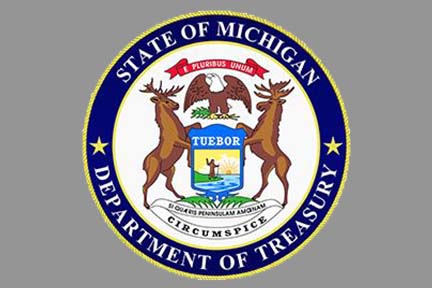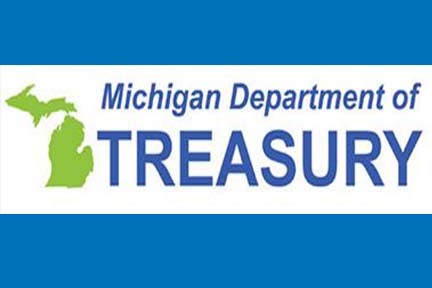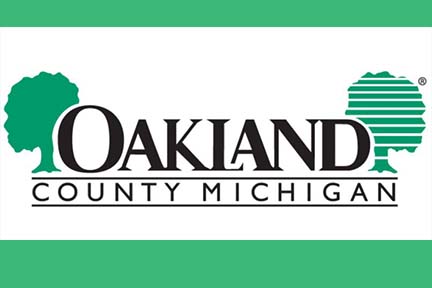
Businesses Impacted by Lack of Snow can Apply for Funding
March 4, 2024
Contact: [email protected]
Gov. Whitmer Urges Small Businesses Impacted by Lack of Snow to Apply for Available Federal Funding
Amid the warmest winter on record, businesses in federally designated areas can apply for Economic Injury Disaster Loans
LANSING, Mich. — As Michigan continues to face record high winter temperatures, Governor Gretchen Whitmer urged Michigan small businesses impacted by lack of snow to apply for federal funding from the Small Business Administration (SBA). Amid the warmest winter on record, with days in February and March topping 60 degrees, federal Economic Injury Disaster Loans are available because of ongoing federal drought declarations affecting 42 Michigan counties.
“Michiganders are used to tough winters, but this year’s record-setting warm winter has been tough in a different way, causing economic hardships for small businesses and regional economies that rely on snow,” said Governor Whitmer. “I know how hard this winter has been on families and communities who rely on winter tourism revenue and all the associated business that comes with it—hotels, restaurants, and shops. Fortunately, businesses in these 42 counties in the UP and the Northern Lower Peninsula can apply for support right now. A drought is a drought—whether we’re talking about rain or snow. Businesses impacted by low snow in these 42 counties can apply for support right now, and I’ll continue to push our federal government for more solutions. We’ll get through this warm winter together.”
Record-Breaking Winter
- The UP200 was cancelled for the second year in a row because of warm weather.
- 16% of the Great Lakes froze over this winter, compared to 53% normally.
- Marquette has seen 72.6 inches of snow this season, compared to 127 inches on average.
- The CopperDog 150 in the Keweenaw Peninsula was cancelled due to weather.
- The Tahquamenon Country Sled Dog Race in Newberry was cancelled due to weather.
- Detroit reached 73 degrees on February 27, the hottest February day in recorded history—dating back to 1874.
- Snowfall in Grand Rapids is more than three feet—36 inches—below the seasonal average.
“It’s all hands on deck to ensure our small businesses affected by the unseasonable lack of snow across the First District are able to make it through this tough winter,” said U.S. Representative Jack Bergman. “Working together with the Governor, business owners, and local leaders, we will continue to take every step possible to extend necessary resources and assistance to help our communities thrive through this unprecedented winter.”
“The many great businesses that depend on a winter wonderland need this chance to access relief funds,” said state Senator Ed McBroom (R-Vulcan). “Winter will be back next year, and we want these shops to be open and ready to serve the visitors who come to the UP.”
“This winter has been especially hard on our businesses that rely on snow. From ski hills to hotels and restaurants, many businesses I’ve spoken to are concerned whether they can even make it to the summer,” said state Senator John Damoose (R-Harbor Springs). “Thank you to all who took the time to meet with us and to the Governor for working with the Small Business Administration to help make special low-interest EIDL loans available. I encourage all of our businesses to move quickly to secure this critical support.”
“The lack of snow this winter has had a profound impact on our local seasonal economies and the people who depend on them, especially in the U.P.,” said state Representative Jenn Hill (D-Marquette). “I appreciate the governor encouraging Michigan’s small businesses to take advantage of the aid that’s available. We all want to ensure our communities remain resilient in the face of these unexpected challenges.”
“Michiganders up north know that getting through the winter means pulling together. That’s true during unusually warm winters, too,” said state Representative Betsy Coffia (D-Traverse City). “This unseasonably warm winter has created unique challenges, especially for those businesses that rely on snow for a strong tourist season. So, I certainly echo Governor Whitmer’s call for small businesses to apply for SBA funds in the face of these unpredictable and difficult times.”
Drought Designation
42 Michigan counties are covered by a disaster designation for drought from the U.S. Department of Agriculture. Through SBA declarations related to those designations, businesses in these counties may be eligible for emergency loans that offset their business losses if the loss is related to the drought.
There are the 42 counties covered by four different SBA drought declarations. Where two declarations cover one county, businesses can apply under either declaration. Applicable SBA declarations and relevant deadlines are as follows:
- Alcona – Drought Declaration #20175, Deadline 9/26/2024
- Alger – Drought Declaration #20175, Deadline 9/26/2024
- Alpena – Drought Declaration #20133, Deadline 8/12/2024 OR Drought Declaration #20175, Deadline 9/26/2024
- Antrim – Drought Declaration #20133, Deadline 8/12/2024
- Arenac – Drought Declaration #20133, Deadline 8/12/2024
- Bay – Drought Declaration #20133, Deadline 8/12/2024
- Benzie – Drought Declaration #20133, Deadline 8/12/2024
- Charlevoix – Drought Declaration #20133, Deadline 8/12/2024
- Cheboygan – Drought Declaration #20133, Deadline 8/12/2024 OR Drought Declaration #20175, Deadline 9/26/2024
- Clare – Drought Declaration #20133, Deadline 8/12/2024
- Crawford – Drought Declaration #20133, Deadline 8/12/2024 OR Drought Declaration #20175, Deadline 9/26/2024
- Delta – Drought Declaration #20175, Deadline 9/26/2024
- Dickinson – Drought Declaration #20209, Deadline 11/27/24
- Emmet – Drought Declaration #20133, Deadline 8/12/2024
- Gladwin – Drought Declaration #20133, Deadline 8/12/2024
- Gogebic – Drought Declaration #18175, Deadline 5/13/2024
- Grand Traverse – Drought Declaration #20133, Deadline 8/12/2024
- Gratiot – Drought Declaration #20133, Deadline 8/12/2024
- Iosco – Drought Declaration #20175, Deadline 9/26/2024
- Iron – Drought Declaration #18175, Deadline 5/13/2024
- Isabella – Drought Declaration #20133, Deadline 8/12/2024
- Kalkaska – Drought Declaration #20133, Deadline 8/12/2024
- Leelanau – Drought Declaration #20133, Deadline 8/12/2024
- Luce – Drought Declaration #20175, Deadline 9/26/2024
- Mackinac – Drought Declaration #20133, Deadline 8/12/2024 OR Drought Declaration #20175, Deadline 9/26/2024
- Manistee – Drought Declaration #20133, Deadline 8/12/2024
- Marquette – Drought Declaration #20175, Deadline 9/26/2024
- Mecosta – Drought Declaration #20133, Deadline 8/12/2024
- Menominee – Drought Declaration #20175, Deadline 9/26/2024
- Midland – Drought Declaration #20133, Deadline 8/12/2024
- Missaukee – Drought Declaration #20133, Deadline 8/12/2024
- Montmorency – Drought Declaration #20133, Deadline 8/12/2024 OR Drought Declaration #20175, Deadline 9/26/2024
- Ogemaw – Drought Declaration #20133, Deadline 8/12/2024 OR Drought Declaration #20175, Deadline 9/26/2024
- Ontonagon – Drought Declaration #18175, Deadline 5/13/2024
- Osceola – Drought Declaration #20133, Deadline 8/12/2024
- Oscoda – Drought Declaration #20133, Deadline 8/12/2024 OR Drought Declaration #20175, Deadline 9/26/2024
- Otsego – Drought Declaration #20133, Deadline 8/12/2024 OR Drought Declaration #20175, Deadline 9/26/2024
- Presque Isle – Drought Declaration #20133, Deadline 8/12/2024 OR Drought Declaration #20175, Deadline 9/26/2024
- Schoolcraft – Drought Declaration #20175, Deadline 9/26/2024
- Roscommon – Drought Declaration #20133, Deadline 8/12/2024
- Saginaw – Drought Declaration #20133, Deadline 8/12/2024
- Wexford – Drought Declaration #20133, Deadline 8/12/2024
“The Michigan Snowsports Industries Association (MSIA) is very appreciative of the work by the Governor’s office, the Small Business Administration and the Michigan Economic Development Corporation to provide disaster relief funding, which will help many Michigan ski areas that are vital job providers and assets to our communities but suffered critical visitation and revenue losses due to weather, with reduced staffing and limited operations during key visitation times,” said Mickey MacWilliams, president and executive director of MSIA. “This has been a challenging winter all across the state but we will persevere, and even with the mild temperatures, many Michigan ski areas are still open to welcome guests.”
“This year’s El Nino weather pattern and unusually mild winter have severely affected our snow-dependent industries,” said Warren Call, President & CEO of Traverse Connect and member of the Northern Michigan Chamber Alliance. “The loans available through this initiative are a much-needed support effort for northern Michigan’s small business employees and owners that rely heavily on winter recreation for their livelihood.”
SBA Economic Injury Disaster Loans
SBA Economic Injury Disaster Loans are designed to help businesses through disaster situations that have impacted their economic well-being. Loans are up to $2 million to help meet financial obligations and operating expenses that could have been met had the disaster not occurred. Businesses pay no interest on the loan for the first year and a maximum rate of 4% for the rest of the loan period. Businesses must apply by the application deadline for their county.
Submit applications and find additional disaster assistance information at https://lending.sba.gov. Call SBA’s Customer Service Center at (800) 659-2955 or email disastercustomerservice@sba.








